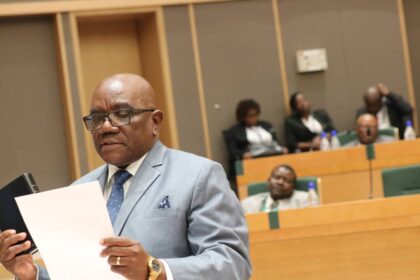Women with Disabilities (WWDs) have encouraged women’s rights movement to team up with them in the fight for equal representation of women in all spheres of society.
Although women rights activists have been at the forefront of advocating for gender equality, WWDs feel they are left behind or not well represented.
WWD face challenges that other women face coupled with multiple forms of discrimination, including ableism, sexism and lack of access to information, resources, and services.
The sentiments emerged during an Interactive Feminist Dialogue organized by Deaf Women Included (DWI).
In an interview with Open Parly ZW, DWI director Agnes Chindimba highlighted one of the resolutions from the interactive Feminist Dialogue which is the importance of inclusion of WWDs in the gender equality agenda.
“As a way forward, women rights actors were encouraged to develop attitudinal changes towards working with WWDs and increase collaborations with them.
“Adding on, it was highly recommended that a coalition space exclusively led by women with disabilities is needed urgently for purposes of increasing disability inclusive advocacy.
“This space will feed into the actions of the broader women’s movement.
Few Organizations Represent WWDs
According to Chindimba, DWI conducted a mapping exercise to establish the number of organizations working to advance the agenda of WWDs and realized that only none existed around the country.
Furthermore, Chindimba bemoaned those fronting the women’s movement for not taking issues to do with WWDs seriously.
As result confining the issues that matter to WWD to the periphery and most times using the charity model to cater for the sector.
“Non-disabled feminists continue to treat disability as a side issue, an optional extra, a funding requisition, and in no way part of the so-called mainstream movement-building issues.
“This failure to widen the space for participation in the mainstream movement of WWDs by non-disabled women clearly showed that they have not invested in finding strategies to ensure that their movement building is a disability inclusive in practice,” she added.
The Interactive Feminist Dialogue is a first step towards addressing the shortfalls in the women’s movement in as far as WWDs are concerned.
Again, the platform is a springboard to equipping WWDs with necessary skills and tools to set their own advocacy agendas.



